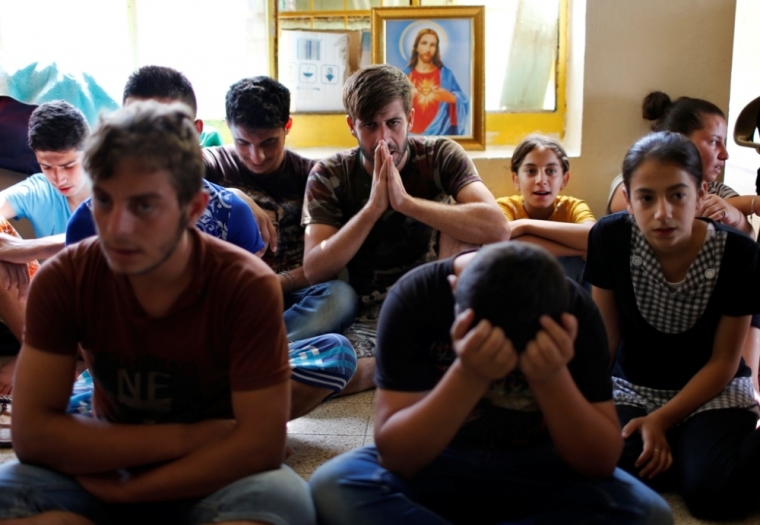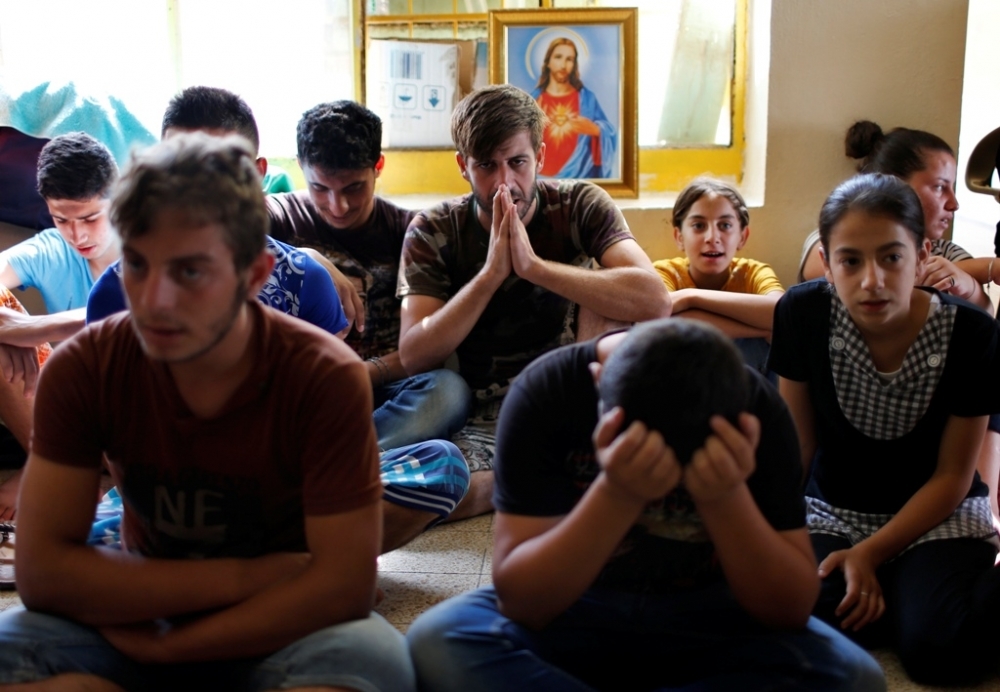
Iraqi Christian leaders convened with a United Nations team and international representatives in Iraq’s Kurdistan Region to discuss ongoing investigations into ISIS’ targeted genocide against Christians, which was described as “barbaric attacks, rooted in hate and inhumanity.”
The United Nations Team to Promote Accountability for Crimes Committed by Da’esh/ISIL, or UNITAD, organized the conference, which also included political leaders from various countries.
UNITAD Special Adviser Christian Ritscher revealed the investigation’s findings, saying ISIS had destroyed Christian cultural heritage in Mosul and the Ninawa plains (also known as Nineveh plains). Churches, monasteries, cemeteries, manuscripts and Christian symbols were targeted in what Ritscher described as “barbaric attacks, rooted in hate and inhumanity,” the U.S.-based persecution watchdog International Christian Concern noted in a statement.
Safeen Dizayee, head of the Kurdistan Regional Government’s Department of Foreign Relations, emphasized Kurdistan’s role as a refuge for Iraq’s Christians. “Christians are the indigenous people of this land and must continue their lives with dignity and security,” Dizayee said.
Dindar Zebari, the Kurdistan Regional Government’s Coordinator for International Advocacy, said the majority of the remaining 200,000 Christians in Iraq have taken refuge in Kurdistan. Zebari recounted the history of Christian persecution in Iraq, noting that displacement due to terrorism peaked after ISIS’ attacks in 2014.
UNITAD’s conference gathered over 30 Christian community leaders and international representatives from the United States, France, the United Kingdom, Canada, Germany, Hungary and the European Union.
Ritscher commended the resilience of the Christian community. “Your togetherness and your resilience are inspirational, not just to the Christian community in Iraq, but also to us at UNITAD,” he said, according to UNITAD’s press release.
Ritscher also mentioned that individual case files for ISIS members involved in crimes against Christians are being developed. These identities are corroborated by testimonial evidence and internal ISIS documents.
U.S. Consul General Mark Stroh and French Acting Consul General Rodolphe Richard reiterated their countries’ support for UNITAD’s investigations. Both emphasized the importance of investigating crimes against the Christian community and other minorities in Iraq.
During the conference, UNITAD investigators provided updates on their progress. They discussed modern tools and methodologies used in international crime investigations.
Christian leaders at the conference shared recommendations on evidence gathering and witness accounts. They stressed the importance of documenting ISIS’ international crimes against the Christian community to hold perpetrators accountable in court.
At last year’s G20 event centered on religions’ role in helping solve global problems, the Most Rev. Bashar Warda, the Chaldean Catholic Archbishop of Erbil, warned that Christianity in Iraq was “on the very edge of extinction.”
During his remarks at the G20 Religion Forum in Bali, Indonesia, in November, the archbishop stressed that “sectarian violence” was a significant problem in Iraq. This country suffered the rise of an Islamic State stronghold during the last decade in which thousands of Iraqi religious minorities were killed, enslaved or forced to flee their homelands.
“Without an end to this sectarian violence, there is no future for religious pluralism in Iraq, or anywhere else in the Mideast for that matter,” he said. “The brutal logic of this is that there does eventually reach an end point where there are no minorities left to kill, and no minorities left to persecute.”
Warda added, “As I share with you this experience, I pray that you will find in our story a clear warning to you all.” He noted that after around 1,900 years of existing in the region, “we Christians of Iraq now find ourselves on the very edge of extinction.”
Although Christians in Iraq once numbered around 1.5 million, that number has fallen to below 200,000 today as the Christian population has deteriorated since the United States military intervention began in 2003.
U.S. forces and their allies killed at least 686 Islamic State suspects in Iraq and Syria in 2022 “to degrade the terror group’s ability to direct and inspire destabilizing attacks in the region and globally,” according to the U.S. Central Command.
Free Religious Freedom Updates
Join thousands of others to get the FREEDOM POST newsletter for free, sent twice a week from The Christian Post.




























![[Video] More – Aghogho » GospelHotspot](https://gospelhotspot.net/wp-content/uploads/2024/04/More-Aghogho.jpeg)
















